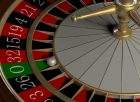Blackjack Strategy: Enhancing Your Chances of Winning

Introduction:
When it comes to casino games, blackjack has always been a fan favorite. With its simple yet exciting gameplay, the game attracts both seasoned players and beginners alike. However, to truly maximize your chances of winning, it is crucial to have a solid understanding of blackjack strategy. In this article, we will delve into the intricacies of blackjack strategy, its evolution over time, and provide valuable insights for individuals interested in casino games.
What is Blackjack Strategy?

Blackjack strategy refers to a set of rules and techniques that players can utilize to make informed decisions during gameplay. Unlike games of pure chance, such as roulette or slot machines, blackjack involves a strategic aspect that players can leverage to improve their odds. By employing the correct strategies, players can minimize the house edge and potentially turn the tables in their favor.
Understanding Basic Blackjack Strategy:
Before delving into advanced blackjack strategies, it is essential to have a solid understanding of the basic principles. The first and foremost rule is to familiarize yourself with the value of each card. Knowing that aces can count as either one or eleven, and face cards are worth ten, is crucial in making informed decisions.
Moreover, players should be aware of the dealer’s rules. Understanding when the dealer must hit or stand provides valuable insight into formulating an effective strategy. For example, if the dealer must hit on a soft 17, it increases their chances of going bust, potentially impacting your decision-making process.
Another crucial aspect of basic blackjack strategy is knowing when to hit, stand, double down, or split. These decisions are highly dependent on factors such as the player’s hand value, the dealer’s upcard, and the number of decks in play. Mastering these basic strategies is pivotal in laying a solid foundation for more advanced gameplay.
Historical Evolution of Blackjack Strategy:
The origins of blackjack can be traced back to the French game “Vingt-et-Un,” meaning “twenty-one.” It gained popularity in European casinos during the 18th and 19th centuries before making its way to America. Initially, blackjack was played with one deck of cards, and players could only bet after all players had their turn. There was no concept of strategy, and the game solely relied on luck.
However, in the mid-20th century, mathematicians and statisticians began studying the game’s probabilities and started developing strategies to improve a player’s edge. Notable names like Edward O. Thorp and Julian Braun revolutionized blackjack strategy by introducing card counting techniques and probability-based calculations.
As casinos began catching on to these strategies and implementing countermeasures, players had to adapt their approaches. This led to the development of more sophisticated card counting systems and the integration of computer simulations to analyze different scenarios. Today, blackjack strategy continues to evolve as players find innovative ways to gain an edge within the framework of the game’s rules.
Advanced Blackjack Strategies:
While basic blackjack strategies form the foundation of gameplay, advanced strategies can take your understanding and success to the next level. These strategies include techniques such as card counting, shuffle tracking, and hole carding. Although card counting is widely known, it typically requires a high level of skill and practice to master effectively.
Card counting strategies involve assigning a numerical value to each card. By keeping track of the count, a player can determine when advantageous situations arise and adjust their bets accordingly. However, it is vital to note that card counting is frowned upon by casinos and may lead to being banned from the premises.
Shuffle tracking involves keeping track of groups of cards during the shuffling process, which can provide valuable insights into future hands. Similarly, hole carding focuses on observing the dealer’s face-down card and using this information to make informed decisions. Both shuffle tracking and hole carding require a keen eye and an understanding of the game mechanics.
In conclusion, blackjack strategy is a crucial element in the pursuit of success in this beloved casino game. By understanding the basics, appreciating its historical evolution, and exploring advanced techniques, players can enhance their chances of winning. Remember, however, that while strategies can provide an edge, blackjack is still subject to luck, and responsible gambling should always be practiced.
So whether you’re a seasoned player or a beginner eager to improve your skills, delving into the fascinating world of blackjack strategy is sure to elevate your casino gaming experience. Remember to approach it with curiosity, patience, and a willingness to adapt as the game evolves. Best of luck at the blackjack table!











